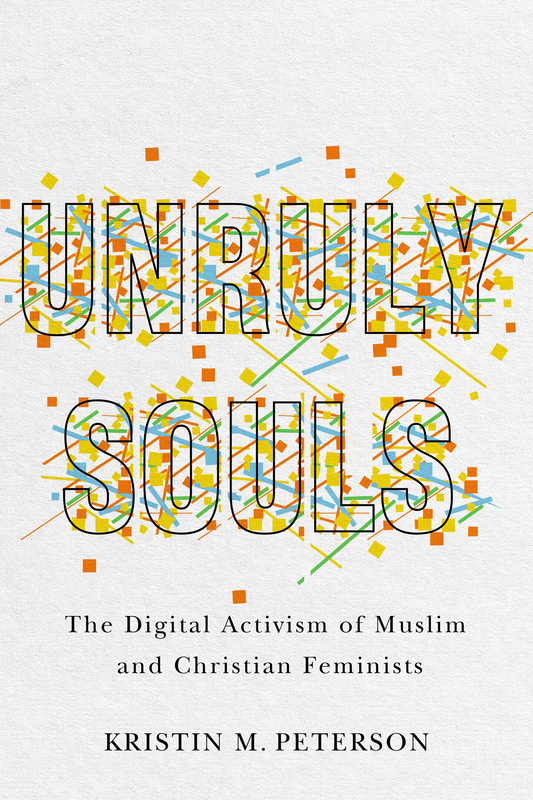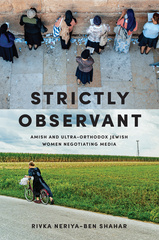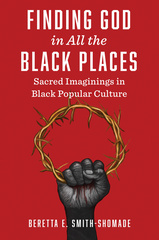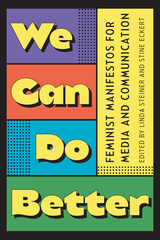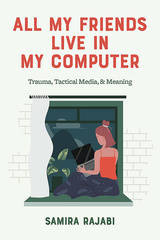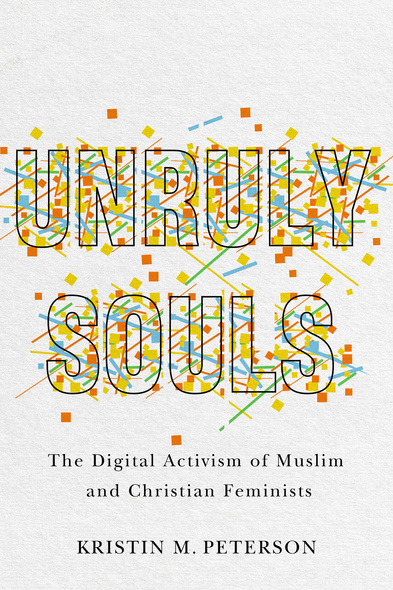
192 pages, 6 x 9
9 b&w images
Paperback
Release Date:15 Jul 2022
ISBN:9781978822665
Hardcover
Release Date:15 Jul 2022
ISBN:9781978822672
Unruly Souls
The Digital Activism of Muslim and Christian Feminists
Rutgers University Press
Amid growing digital activism to address gender-based violence, institutional racism, and homophobia in U.S. society, Unruly Souls explores the intersectional feminist activism among young people within Islam and Evangelical Christianity. These religious misfits—marginalized from traditional religious spaces due to their sexuality, gender, or race—employ the creative tactics of digital media in their work to seek justice and to display their fundamental equality in the eyes of God. Through an analysis of various digital projects from hip-hop music videos and Instagram accounts to Twitter hashtags and podcasts, Kristin Peterson argues that the hybrid, flexible, playful, and sensory nature of digital media facilitate intersectional feminist activism within and beyond religious communities. Drawing on work from queer theory, decolonial theory, and Black feminist theory, this study explores how those who have been marginalized are able to effectively deploy their disregarded status along with digital media tactics to cultivate empathetic communities for those recovering from religious trauma.
This book offers a compelling examination of how calls for gender equity, in concert with critiques of colonialism and empire, are playing out within contemporary Evangelical Christianity and American Muslim communities. With its focus on those who do not come from political or activist backgrounds yet find themselves engaging in feminist activism, the book will hold great interest to young women, especially those who have experienced religious trauma, who are similarly considering how best to act, perform, and express who they are in relation to their communities.
This book is an inspiration for anyone interested in digital religion, the experiences of women in religious spaces, and how digital media can serve as a tool to resist sexual abuse, religious abuse, and fight patriarchal structures.
This book is essential reading for anyone who wants to gain an intersectional understanding of religion online. It moves away from essentialist framings to shed light on real, lived digital lives.
This book offers a compelling examination of how calls for gender equity, in concert with critiques of colonialism and empire, are playing out within contemporary Evangelical Christianity and American Muslim communities. With its focus on those who do not come from political or activist backgrounds yet find themselves engaging in feminist activism, the book will hold great interest to young women, especially those who have experienced religious trauma, who are similarly considering how best to act, perform, and express who they are in relation to their communities.
This book is an inspiration for anyone interested in digital religion, the experiences of women in religious spaces, and how digital media can serve as a tool to resist sexual abuse, religious abuse, and fight patriarchal structures.
This book is essential reading for anyone who wants to gain an intersectional understanding of religion online. It moves away from essentialist framings to shed light on real, lived digital lives.
KRISTIN M. PETERSON is an assistant professor in the department of communication at Boston College in Massachusetts.
Introduction
Chapter 1: Dismantling the Hierarchy of Souls
Chapter 2: #KissShameBye: Textual Critiques of Evangelical Purity Culture
Chapter 3: Bold and Beautiful: Images of Unruly Bodies Destabilize Pious Muslim Icon
Chapter 4: A Seat at the Table: Podcasts Facilitate Dialogue for Marginalized Christian Perspectives
Chapter 5: “We Them Barbarians”: Digital Videos Creatively Rearticulate Muslim Identity
Conclusion: Convergences and Connections
Chapter 1: Dismantling the Hierarchy of Souls
Chapter 2: #KissShameBye: Textual Critiques of Evangelical Purity Culture
Chapter 3: Bold and Beautiful: Images of Unruly Bodies Destabilize Pious Muslim Icon
Chapter 4: A Seat at the Table: Podcasts Facilitate Dialogue for Marginalized Christian Perspectives
Chapter 5: “We Them Barbarians”: Digital Videos Creatively Rearticulate Muslim Identity
Conclusion: Convergences and Connections

